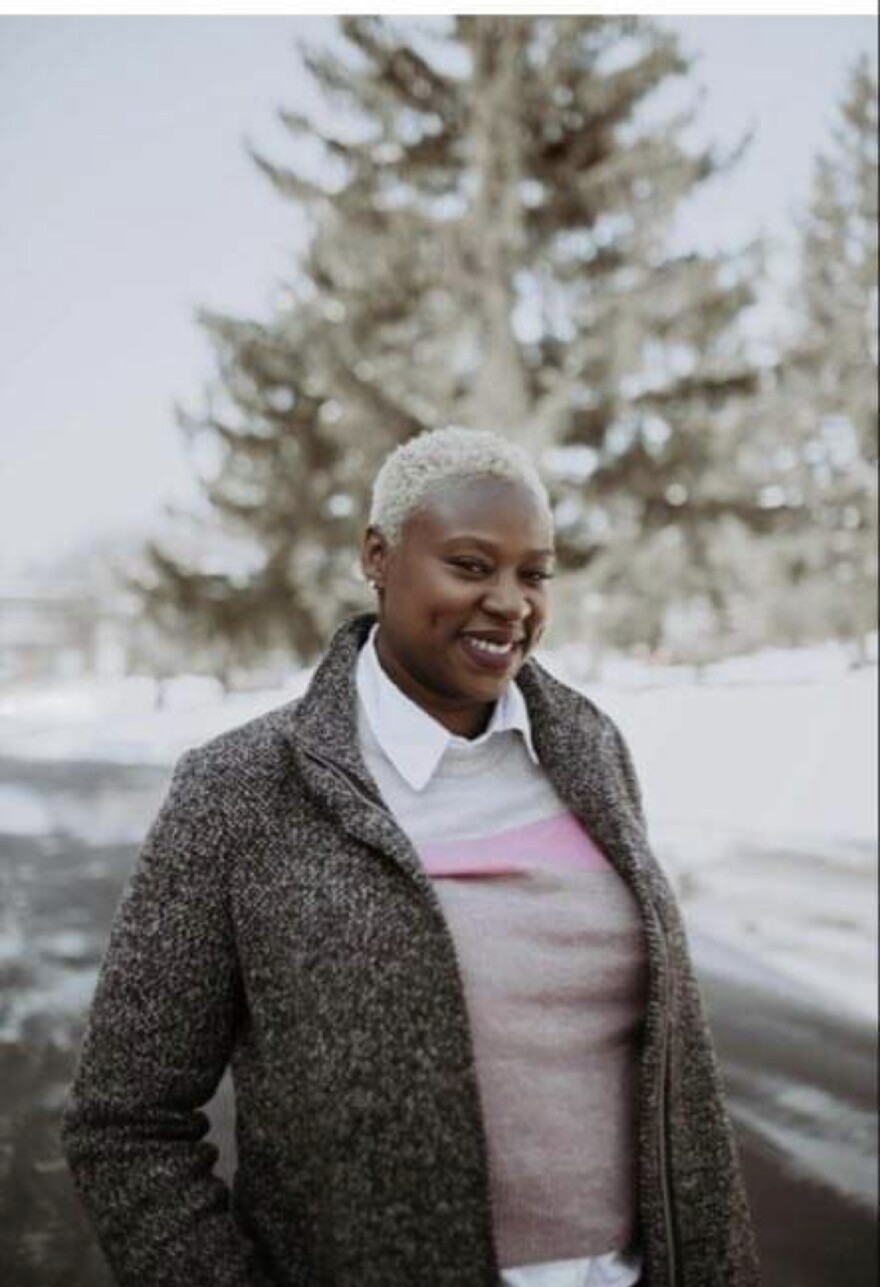Malcolm X’s Lansing roots have been well documented. The civil rights icon spent some of his youth living in the area.
Now, two mid-Michigan residents want their community to remember and give credit to X’s parents, for their own fight against racial oppression.
Earl and Louise Little are best known for being the parents of Malcolm X, but very few know how foundational the two were in shaping the beliefs of their most famous child. The couple moved to Lansing in the late 1920s to foster the movement of the Universal Negro Improvement Association, a group which advocated for Black nationalism.
East Lansing residents Krystal Rose Davis-Dunn and Edmund Rushton want the cities of East Lansing and Lansing to memorialize the Littles by designating every September 28th as Earl and Louise Little Day, the anniversary of Earl Little’s death.

Davis-Dunn said she wants her community to formally recognize their fight against white supremacy.
“We're telling the story of Earl and Louise Little to highlight these practices of white supremacy and Jim Crow and how it has afflicted Black people and how it continues to be perpetuated in today's society," she said.
Rushton is a local activist and a student at Michigan State University. He said remembering the legacy of the Littles can have a broad impact in helping Lansing institutions heal from systemic racism.
“So we feel more confident about where we're going, because I think a great deal of people in this community right now don't feel confident about where we're going in terms of racial healing, and in terms of criminal justice reform, and maybe even in terms of fighting against housing discrimination, and unfair housing practices," he said.
Earl Little was a Baptist Minister by profession who travelled across the country preaching Black unity and political self determination. This caught the attention of local and national Ku Klux Klan groups. He died on September 28, 1931, three years after the Littles moved to Lansing.
At the time, Lansing was a hotbed for white militia movements, and white terror organizations according to author and scholar Erik McDuffie.
“The work of the Littles caught the attention of the Klan and local white supremacist organizations such as the Black Legion, which was a more violent offshoot of a clan, which enjoyed very strong popularity in Michigan, especially in the Lansing area," McDuffie said.
While the circumstances of Earl Little’s death are officially unclear, McDuffie said it was likely the efforts of The Black Legion. Several historical sources disputed the finding, including Malcolm X himself, as detailed in his autobiography.
“The autobiography claims that white supremacists, actually killed Earl Little by beating him up and tying him on streetcar tracks in Lansing which would result in his death," McDuffie explained.
When Earl died, Louise was left to care for their eight children on her own. It was then, McDuffie said, that she was targeted by the government for her radical beliefs in Garveyism.
Garveyism comes from Pan-African Jamaican activists Marcus Garvey and Amy Ashwood Garvey.
At its core Garveyism calls for Black nationalism and empowerment.
“Garveyism was foundational to the modern civil rights movement, to the Black Power movement, to anti colonial movements in Africa and the Caribbean. Arguably, you know, Marcus Garvey was the most important Black person of the 20th century," he said.
According to McDuffie it was this radical consciousness that played a role in Louise’s institutionalization at the Kalamazoo Psychiatric Hospital for nearly a quarter century.
“What Louise Little was saying and how she lived embodied an opposition to racism, an opposition to white supremacy and for that reason she was punished," he said.
McDuffy said the legacy of the Littles has everything to do with their refusal to give in to white supremacy and how this was key in the formation of Malcom X’s activism.
“We can look to the Littles to their resilience, to their courage, to their bravery, to their perseverance, and struggling against multiple forms of oppression," he explained.
Its this legacy that Davis-Dunn and Rushton are hoping the Lansing community and beyond remembers the Littles by.
Davis-Dunn, who is a member of the East Lansing Human Rights Commission, has partnered with Rushton to propose an ordinance in the city honoring the anniversary of Earl Little’s death. Approval is expected from the commission in the coming months. At January’s Human Rights Commissions meeting Rushton asked the commissioners to consider the proposal.
“While they are both not just victims of institutional racism. They are also large figures in the greater story of civil rights progress in the United States of America," he said.
Davis-Dunn and Rushton hope to work with the city of Lansing to introduce and pass a similar ordinance there later this year.




